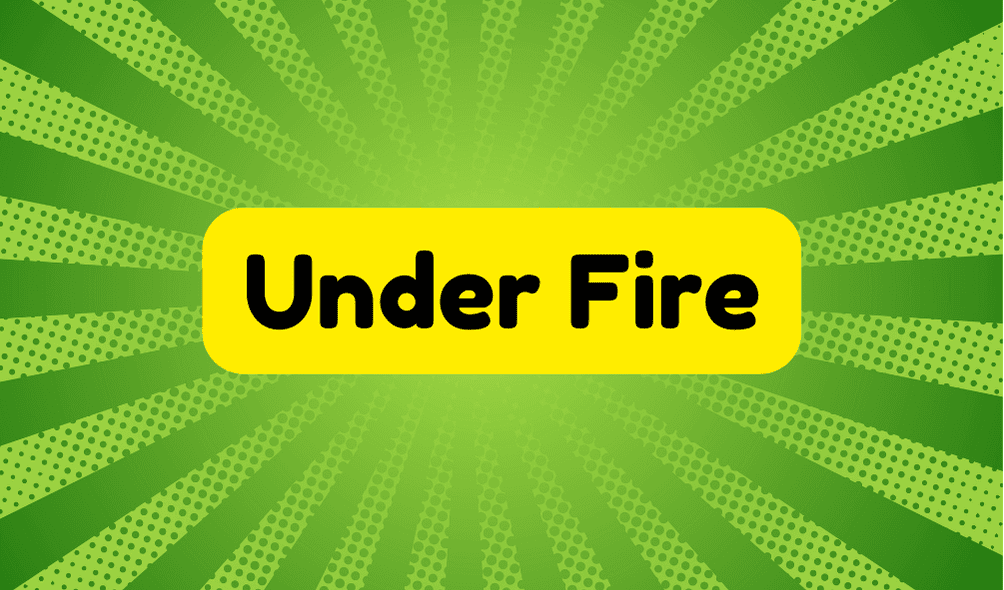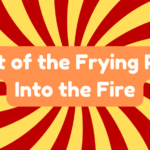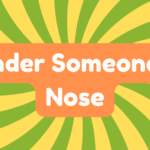The phrase "under fire" means experiencing criticism and intense scrutiny. Its origins trace back to the early 1700s, originally referring to literal gunfire. By the 1800s, its meaning shifted to describe public backlash rather than physical attacks. Common usage includes "caught under fire" or "facing relentless criticism," highlighting the emotional toll of scrutiny. This term remains relevant, especially in today's fast-paced media environment. Discovering its various implications can offer deeper insights into public perception and accountability.
Synonyms
The concept of being "under fire" encompasses a range of synonyms that highlight varying degrees of scrutiny and attack. This phrase leads to synonyms exploration, uncovering terms like:
- Targeted
- Beleaguered
- Embattled
- Besieged
Each word resonates with the emotional weight of pressure and judgment, inviting reflection on the human experience in conflict. Figurative phrases related to this concept emphasize the sharpness of criticism endured by individuals in various settings, from corporate boardrooms to political arenas. Understanding these synonyms not only enriches vocabulary but also fosters a deeper comprehension of the multiple facets of societal accountability.
Example of Sentences
Criticism often looms large in the lives of public figures, making it crucial to look at how they navigate the tough waters of scrutiny. Usage examples of "under fire" reveal a pattern of accountability:
- Public backlash leads to a decline in popularity.
- Stories of dishonesty emerge, damaging reputations.
- Protests erupt as voices demand change.
- Supporters' loyalty is tested in the face of adversity.
These contextual analyses illustrate the phrase's impact on various situations, showcasing the relentless pressures faced by those under fire. Understanding these examples guarantees a thorough grasp of its significance in contemporary dialogues.
Origin
Emerging from the pressures of public scrutiny, the phrase "under fire" carries a rich history that reflects its dual nature. Its historical usage dates back to the early 1700s, where it literally referred to being targeted by enemy gunfire. By the 1800s, it evolved into an idiomatic expression, symbolizing a barrage of criticism rather than bullets. This evolution underscores the metaphorical intensity where accusations fly, suggesting a storm of scrutiny akin to weaponry. With a largely negative connotation, it seldom invites praise, demonstrating a societal tendency to react harshly rather than with insight when individuals find themselves under fire.
Collocations
Collocations related to the phrase "under fire" showcase the various contexts in which this expression is employed, often accompanied by specific verbs and adjectives. These combinations reveal critical situations where individuals find themselves facing intense scrutiny and challenges, akin to fire drills in their unpredictability.
- Caught under fire
- Subject to media scrutiny
- Under fire for decisions
- Facing relentless criticism
Understanding these collocations provides insight into the emotional weight of being "under fire." It emphasizes not only the urgency of the situations but also highlights the often harsh consequences individuals endure when placed in the public eye.
How to Use in Everyday Language
Being "under fire" can often signify a challenging time for individuals caught in the spotlight, where scrutiny and judgment are relentless. In everyday conversations, people may describe colleagues facing harsh workplace feedback as being under fire, highlighting the pressure of evaluations or public opinion. This phrase can serve as a powerful metaphor, capturing the essence of being overwhelmed by criticism, whether in professional settings or personal interactions. Adopting "under fire" in dialogue underscores the emotional toll that scrutiny entails, allowing for deeper discussions about resilience and the necessity of support systems during such trying periods in life.
Why Is It Still Relevant Today?
The relevance of the phrase "under fire" persists in contemporary society, particularly in the domains of politics and social media. As public opinion shifts rapidly, individuals—whether politicians, celebrities, or organizations—find themselves constantly facing criticism. Social media amplifies these attacks, creating an environment where scrutiny intensifies. Mistakes or controversial statements lead to immediate backlash, often casting individuals into the spotlight, much like being under fire from a cannon. This idiom reflects the high stakes involved in public discourse today, where accountability is paramount, yet sometimes misdirected, revealing the complex dynamics of modern communication and the pervasive nature of digital platforms.







